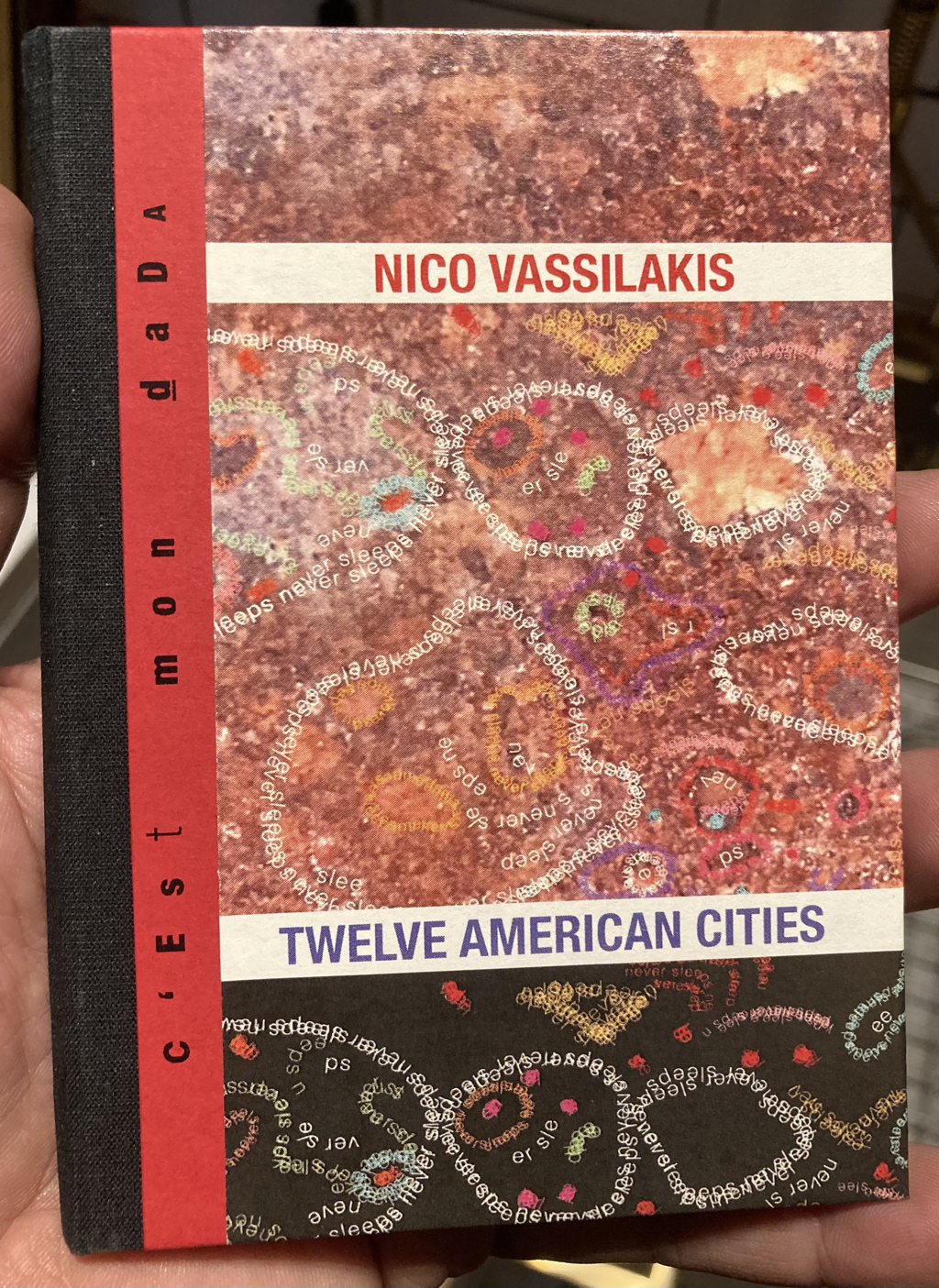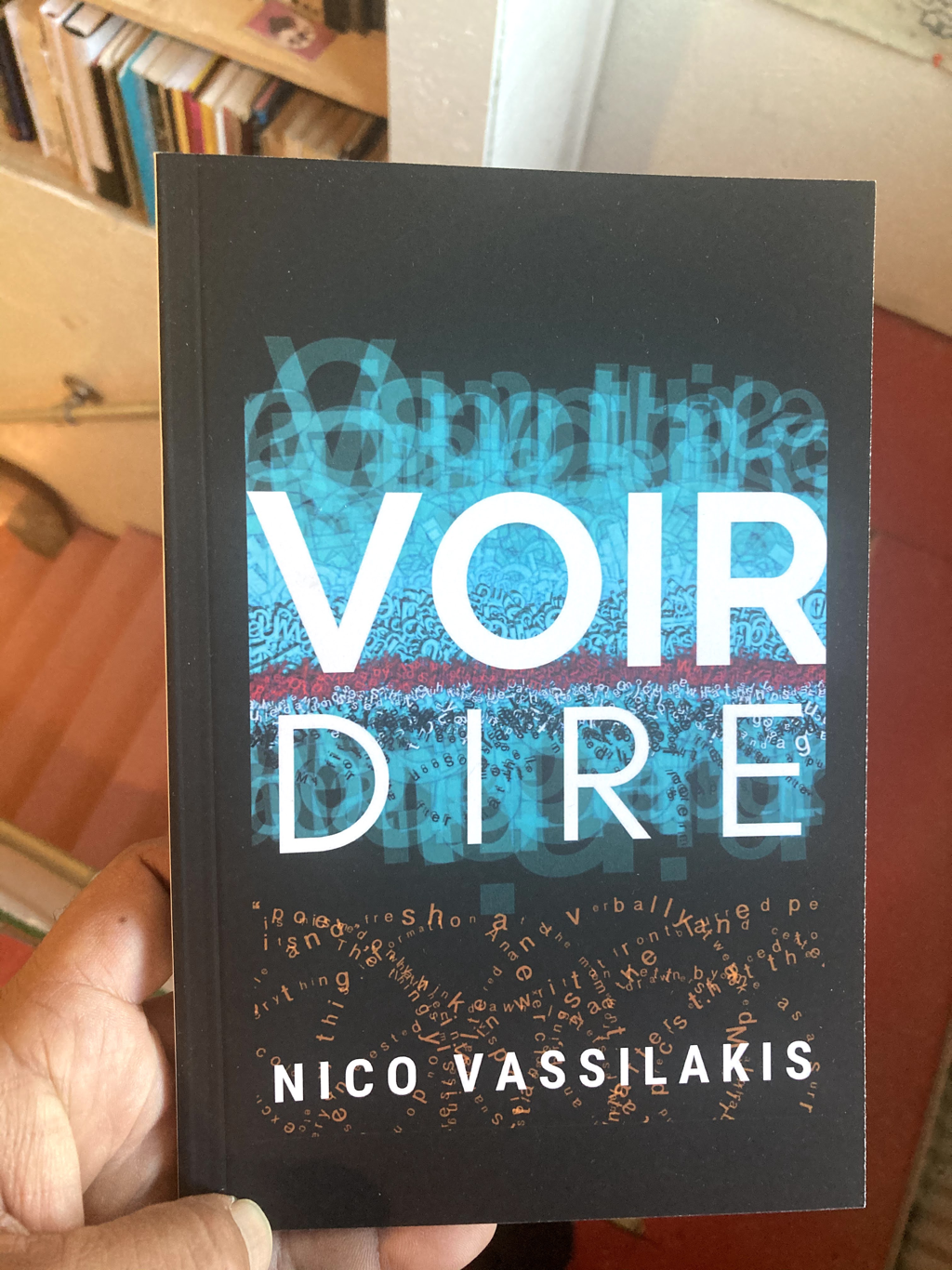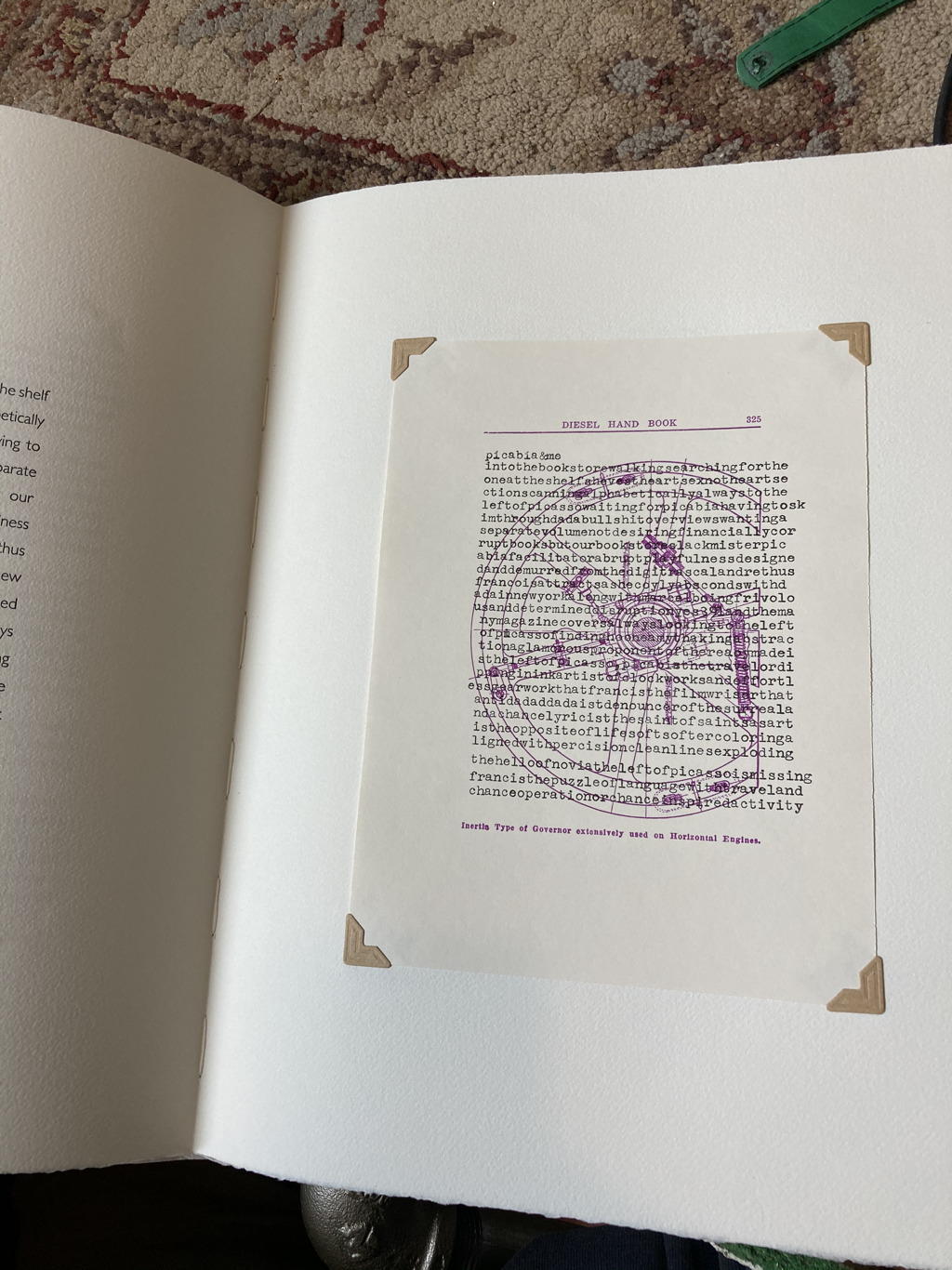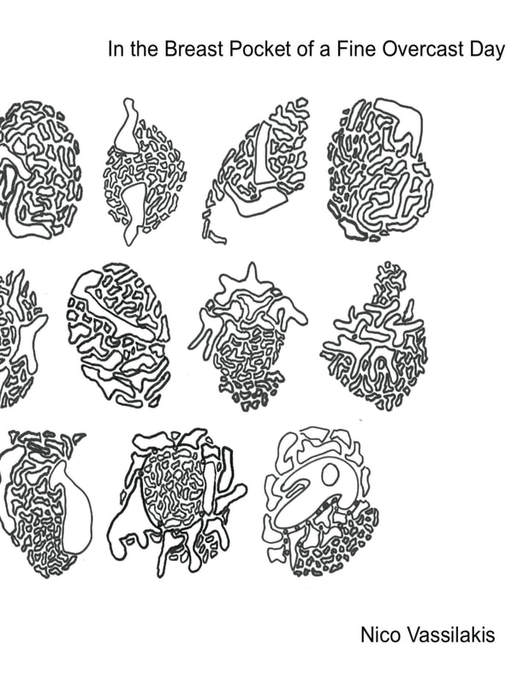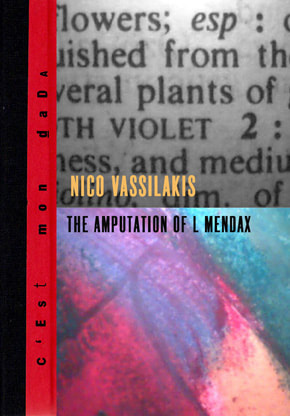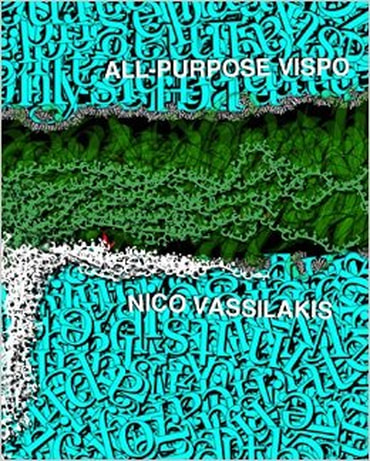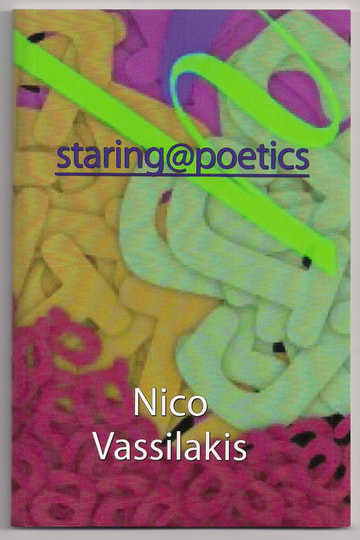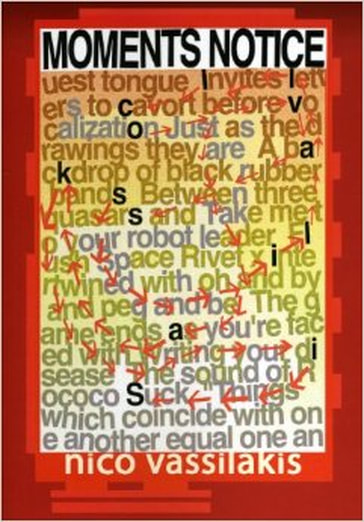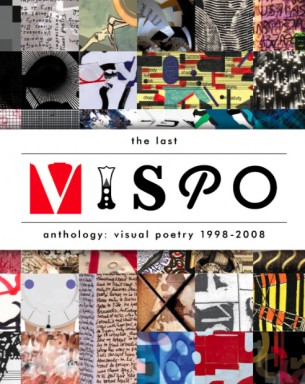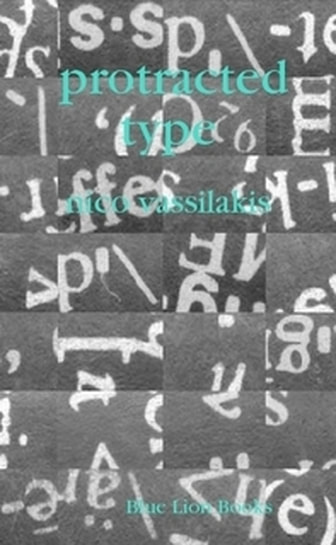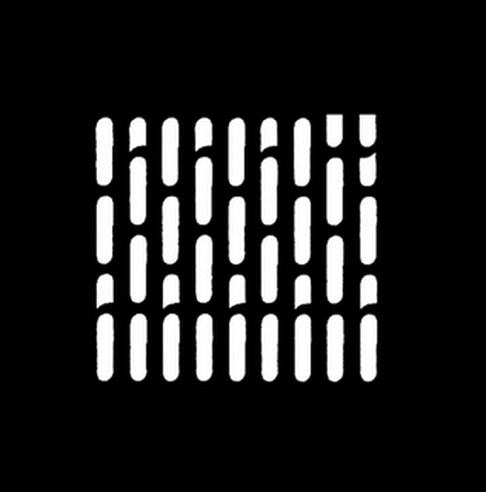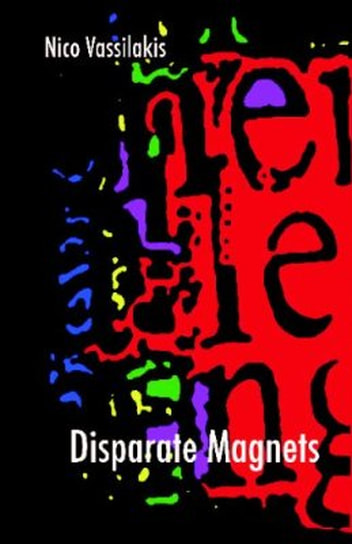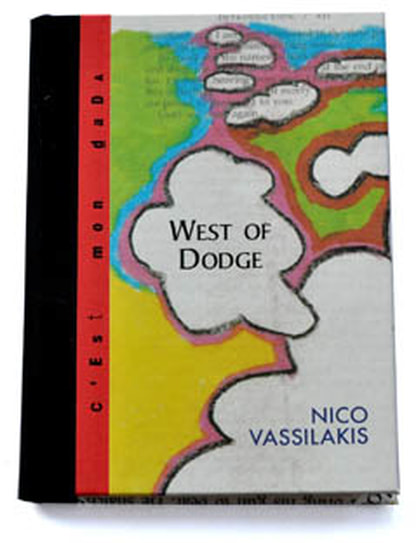TWELVE AMERICAN CITIES
redfoxpress Ireland
To purchase:
http://redfoxpress.com/dada-vassilakis3.html
Rust in Twelve American Cities
Cities are inorganic structures plonked onto the landscape, much as an old car is sunk into the sea to form an artificial reef. All materials decay. Iron is an important material used widely by humans. Iron decays into iron oxide, commonly known as rust. Nico's photos of rust could be taken to be portraits of the inorganic components of the city.
Rust forms colonies, reminiscent of John Conway's Life computer simulation, in which adjacent cells become infected and alive. Once rust has a foothold, it spreads contiguously. Rust also resembles scabs, the signs of human skin healing. Unlike scabs, which signal the rebirth of the skin underneath, rust is the permanent conversion of metal into oxide. Wounded humans regenerate, but the city flakes away.
Each of the twelve cities in this book has three components. The first component is a portrait of metal infected with rust. In the second component, each colony of rust is surrounded with the phrase "never sleeps", demarcating the most intensely rusted area as a plastic surgeon marks a feature on the human skin. These shapes resemble the forms of mould or moss. The colours of each instance of the phrase blend into the rusty colouration, blurring the distinction between background and foreground. The third component is the same text on a black background. In this case, the text clearly sits in the foreground. The effect of these three components is to show you an example of metal which is partly converted into rust, point out the epicentres of rust, and present them as ideal forms, in which text is used as a kind of drawing of the outline. Rust is speaking to us, demonstrating its extent in each city.
A city needs constant intervention by humans to prevent this natural state of rust from destroying every part of it. Rust, the city that never sleeps.
Tim Gaze
August 2020
redfoxpress Ireland
To purchase:
http://redfoxpress.com/dada-vassilakis3.html
Rust in Twelve American Cities
Cities are inorganic structures plonked onto the landscape, much as an old car is sunk into the sea to form an artificial reef. All materials decay. Iron is an important material used widely by humans. Iron decays into iron oxide, commonly known as rust. Nico's photos of rust could be taken to be portraits of the inorganic components of the city.
Rust forms colonies, reminiscent of John Conway's Life computer simulation, in which adjacent cells become infected and alive. Once rust has a foothold, it spreads contiguously. Rust also resembles scabs, the signs of human skin healing. Unlike scabs, which signal the rebirth of the skin underneath, rust is the permanent conversion of metal into oxide. Wounded humans regenerate, but the city flakes away.
Each of the twelve cities in this book has three components. The first component is a portrait of metal infected with rust. In the second component, each colony of rust is surrounded with the phrase "never sleeps", demarcating the most intensely rusted area as a plastic surgeon marks a feature on the human skin. These shapes resemble the forms of mould or moss. The colours of each instance of the phrase blend into the rusty colouration, blurring the distinction between background and foreground. The third component is the same text on a black background. In this case, the text clearly sits in the foreground. The effect of these three components is to show you an example of metal which is partly converted into rust, point out the epicentres of rust, and present them as ideal forms, in which text is used as a kind of drawing of the outline. Rust is speaking to us, demonstrating its extent in each city.
A city needs constant intervention by humans to prevent this natural state of rust from destroying every part of it. Rust, the city that never sleeps.
Tim Gaze
August 2020
VOIR DIRE by Nico Vassilakis
DUSIE BOOKS 2020
Expleted, completed, depleted. Letters (aka alphabets) will always turn out to have been humanity's most destructive invention - shadow companions right to skinny end, black dot-matrix dogs of chalkboard traumas. In this curricular scene, being an illegible subject is your best defense, against bullets, bullet-points, power, power-point, rules and rulers. Molten instruments for sure, these writings might also be ambient field recordings of an alphabet's unconsious, through its letters' hypersleep journeys to other destinations. Off-world, off-pivot, out-of-centre. De-parliamentarised, thrown out of government jobs, slow cruising towards a consensus that can never be reached. An autogestion spacetime craft of the fundamentals. Yep, socialism will always turn out to have been the only solution. It can launch (as it does here) with a series of serendipitous explosions. A conjure-gawk sowing gapeseed, an audacious carp, a freaky duck with webbed touch, muddling intermeddler diapered in inks? Oh, you mean N-I-C-O V-A-S-S-I-L-A-K-I-S. Everyone ever homeschooled by that guy started a new civilization.
Donato Mancini
How many ways do seeing and saying separate, coalesce, contradict, and divide? As many as there are combinations of letters in the alphabet that do and do not form words, and are entered into temporal sequences, fit to be tied with marbled moods. This is Vassilakis at his most confessional, as he tells us what he most seeks is that "wonky second when the brain doesn't know how to process incoming information . . . .The letters like an off-grid dinosaur lumbering and uttering, keeping our early developmental selves alongside our adult frame."
Jeanne Heuving
Get a copy here:
https://www.amazon.com/Voir-Dire-Nico-Vassilakis/dp/1944253084/ref=mp_s_a_1_6?dchild=1&keywords=nico+vassilakis&qid=1608040837&sprefix=nico+vass&sr=8-6
DUSIE BOOKS 2020
Expleted, completed, depleted. Letters (aka alphabets) will always turn out to have been humanity's most destructive invention - shadow companions right to skinny end, black dot-matrix dogs of chalkboard traumas. In this curricular scene, being an illegible subject is your best defense, against bullets, bullet-points, power, power-point, rules and rulers. Molten instruments for sure, these writings might also be ambient field recordings of an alphabet's unconsious, through its letters' hypersleep journeys to other destinations. Off-world, off-pivot, out-of-centre. De-parliamentarised, thrown out of government jobs, slow cruising towards a consensus that can never be reached. An autogestion spacetime craft of the fundamentals. Yep, socialism will always turn out to have been the only solution. It can launch (as it does here) with a series of serendipitous explosions. A conjure-gawk sowing gapeseed, an audacious carp, a freaky duck with webbed touch, muddling intermeddler diapered in inks? Oh, you mean N-I-C-O V-A-S-S-I-L-A-K-I-S. Everyone ever homeschooled by that guy started a new civilization.
Donato Mancini
How many ways do seeing and saying separate, coalesce, contradict, and divide? As many as there are combinations of letters in the alphabet that do and do not form words, and are entered into temporal sequences, fit to be tied with marbled moods. This is Vassilakis at his most confessional, as he tells us what he most seeks is that "wonky second when the brain doesn't know how to process incoming information . . . .The letters like an off-grid dinosaur lumbering and uttering, keeping our early developmental selves alongside our adult frame."
Jeanne Heuving
Get a copy here:
https://www.amazon.com/Voir-Dire-Nico-Vassilakis/dp/1944253084/ref=mp_s_a_1_6?dchild=1&keywords=nico+vassilakis&qid=1608040837&sprefix=nico+vass&sr=8-6
DIESEL HAND
Chax Press
Letterpress
Edition run: 60
Intro by Karl Young
To purchase: https://www.chax.org/product-page/diesel-hand-by-nico-vassilakis
Chax Press
Letterpress
Edition run: 60
Intro by Karl Young
To purchase: https://www.chax.org/product-page/diesel-hand-by-nico-vassilakis
Reading In the Breast Pocket of a Fine Overcast Day gave me the startling feeling I was inside its poems — invited onto their planes of perception to take part by listening, and given space to catch the constant glimpses of recognition between world and poem as they mark their eternal gambits of overlap. Nico handles tone with a precision so deft and close-in as to shape intimacy’s layers of wit and doubt with disarming availability. By extension the lines and spaces between them in his poems seem to equally vibrate, registering depths of wisdom and humor one will be hard-pressed to find anywhere else.
Anselm Berrigan
Once, in a conversation with Nico in Seattle he told me that he can't see words anymore, he sees their graphic composition.
"In the Breast Pocket of a Fine Overcast Day" is a book about text and image confronting each other. It is also about giving language another chance: this time with feelings. There is an intense awareness of the textual conditions of the poem in this collection, also an awareness of socio-economic and racial conditions. Nico mourns the diminished use value of human life. Of sentences disguised as thoughts. In a world that switches language off, these poems make a sincere attempt to turn it back on again. The levels of awareness and sensitivity carried within this collection are profound and contagious. It is a great book.
Maged Zaher
You can find it here:
https://www.amazon.com/Breast-Pocket-Fine-Overcast-Day/dp/1976362598
Anselm Berrigan
Once, in a conversation with Nico in Seattle he told me that he can't see words anymore, he sees their graphic composition.
"In the Breast Pocket of a Fine Overcast Day" is a book about text and image confronting each other. It is also about giving language another chance: this time with feelings. There is an intense awareness of the textual conditions of the poem in this collection, also an awareness of socio-economic and racial conditions. Nico mourns the diminished use value of human life. Of sentences disguised as thoughts. In a world that switches language off, these poems make a sincere attempt to turn it back on again. The levels of awareness and sensitivity carried within this collection are profound and contagious. It is a great book.
Maged Zaher
You can find it here:
https://www.amazon.com/Breast-Pocket-Fine-Overcast-Day/dp/1976362598
THE AMPUTATION OF L. MENDAX
Dissimilar time signatures. Things that make sense as needed. It tends to unfold the way a viewer thinks about seeing. Walking next to oneself. Words curtailed, pictures condensed, reaching an other. L Mendax is a visual capture of happenstance and the associative properties found therein. Amputation here is a forced shortening, snippets alongside details. "Things which coincide with one another equal one another."
To purchase: http://www.redfoxpress.com/dada-vassilakis2.html
Dissimilar time signatures. Things that make sense as needed. It tends to unfold the way a viewer thinks about seeing. Walking next to oneself. Words curtailed, pictures condensed, reaching an other. L Mendax is a visual capture of happenstance and the associative properties found therein. Amputation here is a forced shortening, snippets alongside details. "Things which coincide with one another equal one another."
To purchase: http://www.redfoxpress.com/dada-vassilakis2.html
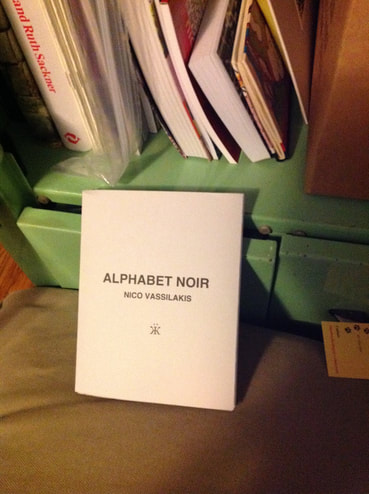
Alphabet Noir
c_L books
with an introduction by Crag Hill: http://galatearesurrection27.blogspot.com/2016/12/alphabet-noir-by-nico-vassilakis.html
100 pages, perfectbound, with dust jacket.
Alphabet Noir is a book of writings that run the gamut of letters as the scaffold of visual poetry and the poetics of seeing. You should leave this book wanting all letters liberated of their word scrum obligation.
Alphabet Noir is a collection of texts about seeing writing. Since Nico Vassilakis has a designer’s as well as a poet’s eye, his work is a pleasure to look at, no matter where it’s coming from or where it’s going. He’s literally a poet to watch.
Aram Saroyan
An indispensable tour de force. Nico Vassilakis' brilliant journey through the alphabet mines the conceptual underpinnings of vispo taking us through rich thickets of language, wit and erudition. We are lucky to have him.
Erica Baum
A little gem of a book, by a seasoned practitioner of the art. Viewing its subject from many different sides in surprising ways. Impulses of creative urge, the wish to make new visual poems myself right away, were the only thing that made me pause reading.
Jaap Blonk
Review from Patrick Hartigan http://hartiganhartigan.blogspot.com/2017/12/we-review-alphabet-noir-by-nico.html?m=1
Review from Jim Leftwich: galatearesurrects2017.blogspot.com/2017/07/alphabet-noir-by-nico-vassilakis.html
Review from Greg Bem: http://queenmobs.com/2016/10/poetry-review-alphabet-noir-by-nico-vassilakis/
Review from Amaranth Borsuk:
c_L books
with an introduction by Crag Hill: http://galatearesurrection27.blogspot.com/2016/12/alphabet-noir-by-nico-vassilakis.html
100 pages, perfectbound, with dust jacket.
Alphabet Noir is a book of writings that run the gamut of letters as the scaffold of visual poetry and the poetics of seeing. You should leave this book wanting all letters liberated of their word scrum obligation.
Alphabet Noir is a collection of texts about seeing writing. Since Nico Vassilakis has a designer’s as well as a poet’s eye, his work is a pleasure to look at, no matter where it’s coming from or where it’s going. He’s literally a poet to watch.
Aram Saroyan
An indispensable tour de force. Nico Vassilakis' brilliant journey through the alphabet mines the conceptual underpinnings of vispo taking us through rich thickets of language, wit and erudition. We are lucky to have him.
Erica Baum
A little gem of a book, by a seasoned practitioner of the art. Viewing its subject from many different sides in surprising ways. Impulses of creative urge, the wish to make new visual poems myself right away, were the only thing that made me pause reading.
Jaap Blonk
Review from Patrick Hartigan http://hartiganhartigan.blogspot.com/2017/12/we-review-alphabet-noir-by-nico.html?m=1
Review from Jim Leftwich: galatearesurrects2017.blogspot.com/2017/07/alphabet-noir-by-nico-vassilakis.html
Review from Greg Bem: http://queenmobs.com/2016/10/poetry-review-alphabet-noir-by-nico-vassilakis/
Review from Amaranth Borsuk:
| Amaranth Borsuk review | |
| File Size: | 6 kb |
| File Type: | |
ALL-PURPOSE VISPO by Nico Vassilakis
Visual Poetry. . . . The hum of Letters harmonize. That demeanor of Singular design objects. An arrangement of Chance before capitulating. The letter is Form. The letters Are content. Words will not thrive Here. Composition is its Own vocabulary. Decisions over. We celebrate the Pre word .
To purchase: https://www.amazon.com/ALL-PURPOSE-Vispo-Nico-Vassilakis/dp/1495293998
Visual Poetry. . . . The hum of Letters harmonize. That demeanor of Singular design objects. An arrangement of Chance before capitulating. The letter is Form. The letters Are content. Words will not thrive Here. Composition is its Own vocabulary. Decisions over. We celebrate the Pre word .
To purchase: https://www.amazon.com/ALL-PURPOSE-Vispo-Nico-Vassilakis/dp/1495293998
Staring@Poetics by Nico Vassilakis
http://xexoxial.org/is/staring_at_poetics/by/nico_vassilakis
Nico Vassilakis appears before us a master of visual poetry, one of the few, someone who understands the arrangement of letters into stareable sense, an unsense of the breathing heart, and he appears before us speaking of visual poetry as an act of making and seeing, speaking to us, speaking of himself, showing through the pages of this vast but tiny poetics just what his preaching practices, and the words are beautiful and teach of visual poetry as a poetry as told to us through a poetic poetics, and the images of letters, these dark and suppurating visual poems scattered through the text, haunt us back into sleep, back into dreaming of the humped and crooked and gracefully curving shapes of letters that have become an essential element of our blood—it is all here, where everything is of a piece and shattered into pieces.
Geof Huth
Nico Vassilakis has created the perfect volume to delight and inspire the full spectrum of a visual poetry audience, ranging from someone unaware of the art, to the fully engaged, addicted practitioner of vispo. He delves into the progressively crystalline elements of visual poetry: the word, the letter, the fraction of a letter. The writing is brilliant; the visual poetry, stunning. Staring is replete with pure discovery, rendered in textual and visio-textual dimensions. Vassilakis recalls, reveals, and spawns pure visual poetry, inspiring full attunement to an inventively distilled magic.
Sheila E. Murphy
Wow! I attended the Avant Writing conference where Nico Vassilakis composed staring@poetics and marvel how he is able to perform the formidable multitasking of writing this long poem and illustrating it with stunningly beautiful, computer generated, visual letter poems as his take on their emotional, visual impact while remaining attentive to the many oral presentations at this conference. But I shouldn’t be surprised – I have followed his poetic career for many years and found him to be one of the most challenging, cutting-edge, American poets today. The long poem or the visual poems are each worth the price of the book. This book deserves a place in any library of contemporary poetry.
Marvin A Sackner
http://xexoxial.org/is/staring_at_poetics/by/nico_vassilakis
Nico Vassilakis appears before us a master of visual poetry, one of the few, someone who understands the arrangement of letters into stareable sense, an unsense of the breathing heart, and he appears before us speaking of visual poetry as an act of making and seeing, speaking to us, speaking of himself, showing through the pages of this vast but tiny poetics just what his preaching practices, and the words are beautiful and teach of visual poetry as a poetry as told to us through a poetic poetics, and the images of letters, these dark and suppurating visual poems scattered through the text, haunt us back into sleep, back into dreaming of the humped and crooked and gracefully curving shapes of letters that have become an essential element of our blood—it is all here, where everything is of a piece and shattered into pieces.
Geof Huth
Nico Vassilakis has created the perfect volume to delight and inspire the full spectrum of a visual poetry audience, ranging from someone unaware of the art, to the fully engaged, addicted practitioner of vispo. He delves into the progressively crystalline elements of visual poetry: the word, the letter, the fraction of a letter. The writing is brilliant; the visual poetry, stunning. Staring is replete with pure discovery, rendered in textual and visio-textual dimensions. Vassilakis recalls, reveals, and spawns pure visual poetry, inspiring full attunement to an inventively distilled magic.
Sheila E. Murphy
Wow! I attended the Avant Writing conference where Nico Vassilakis composed staring@poetics and marvel how he is able to perform the formidable multitasking of writing this long poem and illustrating it with stunningly beautiful, computer generated, visual letter poems as his take on their emotional, visual impact while remaining attentive to the many oral presentations at this conference. But I shouldn’t be surprised – I have followed his poetic career for many years and found him to be one of the most challenging, cutting-edge, American poets today. The long poem or the visual poems are each worth the price of the book. This book deserves a place in any library of contemporary poetry.
Marvin A Sackner
MOMENTS NOTICE
http://www.spdbooks.org/Producte/9781938521065/moments-notice.aspx
Vassilakis has taken a huge leap forward in the evolution of concrete poetry, by utilizing the myriad possibilities of digital manipulation of typography. The result is work of stunning beauty, color, design, concept, with a visuality that makes his ideas and poetics vivid and endlessly intriguing.
John M. Bennett
Moments notice us at a moment’s notice, lying in wait for us, in this space-time lingo-jaunt. When humans (hypothetically) fall into a black hole, the first thing their bodies undergo is “spagghettification.” One could say that when human language falls into Nico Vassilakis’s clutches, it undergoes a similar process. But instead of annhihilation, there is plenitude. Visually festive, this malleable skein of tangled spagghettiyarn’d verbiage bounces and twists its way through text/image after text/image, singing as it goes. Join in for a rollicking time, but hold on to your hat!
Maria Damon
Is it feasible for visual poetry to be positively erudite? In the words (or word) of one of the not-quite-texts here, Moments Notice presents the argument for YES.
Ron Silliman
The Tongue knows language never spoken never revealed in the spaces between letters between the multiple readings of discourse gone blissful. The Tongue ties typography graphic in the handheld device of your choice, thumbed at, thumbed into endless arrays pleasured from the keyboard of all possibilities.
mIEKAL aND
http://www.spdbooks.org/Producte/9781938521065/moments-notice.aspx
Vassilakis has taken a huge leap forward in the evolution of concrete poetry, by utilizing the myriad possibilities of digital manipulation of typography. The result is work of stunning beauty, color, design, concept, with a visuality that makes his ideas and poetics vivid and endlessly intriguing.
John M. Bennett
Moments notice us at a moment’s notice, lying in wait for us, in this space-time lingo-jaunt. When humans (hypothetically) fall into a black hole, the first thing their bodies undergo is “spagghettification.” One could say that when human language falls into Nico Vassilakis’s clutches, it undergoes a similar process. But instead of annhihilation, there is plenitude. Visually festive, this malleable skein of tangled spagghettiyarn’d verbiage bounces and twists its way through text/image after text/image, singing as it goes. Join in for a rollicking time, but hold on to your hat!
Maria Damon
Is it feasible for visual poetry to be positively erudite? In the words (or word) of one of the not-quite-texts here, Moments Notice presents the argument for YES.
Ron Silliman
The Tongue knows language never spoken never revealed in the spaces between letters between the multiple readings of discourse gone blissful. The Tongue ties typography graphic in the handheld device of your choice, thumbed at, thumbed into endless arrays pleasured from the keyboard of all possibilities.
mIEKAL aND
The Last Vispo Anthology
Edited by Nico Vassilakis and Crag Hill
https://www.amazon.com/Last-Vispo-Anthology-Visual-1998-2008/dp/1606996266
Edited by Nico Vassilakis and Crag Hill
https://www.amazon.com/Last-Vispo-Anthology-Visual-1998-2008/dp/1606996266
Protracted Type
http://www.lulu.com/us/en/shop/nico-vassilakis/protracted-type/paperback/product-4919227.html
In Protracted Type, Nico Vassilakis provides us with a stunning and extensive survey of the impressive variety of his visual and conceptual work with language over the past several years. The book is punctuated with thoughtful statements about the nature of creating that work, of “finding your aleatoric self among the pencils”; i.e., coming to grips with the paradox of working subconsciously with language which is generally experienced as a conscious medium. In one of his statements he describes his creative process as a kind of disassociation: “I let my brain do the thinking. I watch it think for me…it makes the associations…maybe my brain thinks I’m staring and is piecing the puzzle together for me.” This is an excellent description of the creative process at its best.
Vassilakis has explored the possibilities of visual poetry from the outer limits of the purely letteral to the purely graphic, and the results are consistently stimulating and resonant: from enlarged and manipulated photos of typewriter keys and printed letters, to collaged cut-ups, to glyphic drawings, to concrete poetry, to photocopier artifacts, Vassilakis has given us a tour-de-force of styles and approaches. This is an essential work, and would be a bargain at three times the price.
John M. Bennett
the formula states, “a picture equals a thousand words.” what, then, is the formula when the image is itself language? and, that the language ranges from its initial formation slowly congealing afloat in the willful stage of conscious intent to its full and robust compositional form as a typographic-scape on a page?
to approach this collection, think first of a landscape artist’s precise use of topographic perspective at the marco level and the same artist as a still life painter at the micro level rendering the sensual curve of an apple in a tree within the macro-scape. then, transfer your trained eye and esthetic process onto and into vassilakis’ typographic-scapes and typographic-stills to wander with delight and wonder within one of the most comprehensive, serious and playful overviews and inner views of type and font with accents by hand to date.
karl kempton
A tour de force through visual poetry, Protracted Type is a place where, according to the author, "letters are vulnerable and cant always stand on their own." Within, our thoughts become interlaced with Vassilakis's perception of visual poetry from minimal to maximal with letters ranging from typewriter and digital through handwritten, shorthand, and altered text, text sometimes so overlayed as to become asemic. This is a thoroughly enjoyable and beautiful book.
Kathy Ernst
It’s drizzling on Admiral Way. Cigarette smoke trailing through his black hair, the Captain stands stock-still at the window, his sea legs steady, framed by the world he’s framing. He sees this series of black and white visual poems–and these poems are seen, composed, more than they are written–particulates, letters, phrases, fields of words before and after they construct their meaning, some sharp, some fuzzy, some slipping over the edge. At the center point of the glass, where inside and outside are indivisible, these poems fuse, the Captain’s eyes seizing–seized by–the world he perceives. At the very instant of our dissembling, he nods, our language comes together.
Crag Hill
http://www.lulu.com/us/en/shop/nico-vassilakis/protracted-type/paperback/product-4919227.html
In Protracted Type, Nico Vassilakis provides us with a stunning and extensive survey of the impressive variety of his visual and conceptual work with language over the past several years. The book is punctuated with thoughtful statements about the nature of creating that work, of “finding your aleatoric self among the pencils”; i.e., coming to grips with the paradox of working subconsciously with language which is generally experienced as a conscious medium. In one of his statements he describes his creative process as a kind of disassociation: “I let my brain do the thinking. I watch it think for me…it makes the associations…maybe my brain thinks I’m staring and is piecing the puzzle together for me.” This is an excellent description of the creative process at its best.
Vassilakis has explored the possibilities of visual poetry from the outer limits of the purely letteral to the purely graphic, and the results are consistently stimulating and resonant: from enlarged and manipulated photos of typewriter keys and printed letters, to collaged cut-ups, to glyphic drawings, to concrete poetry, to photocopier artifacts, Vassilakis has given us a tour-de-force of styles and approaches. This is an essential work, and would be a bargain at three times the price.
John M. Bennett
the formula states, “a picture equals a thousand words.” what, then, is the formula when the image is itself language? and, that the language ranges from its initial formation slowly congealing afloat in the willful stage of conscious intent to its full and robust compositional form as a typographic-scape on a page?
to approach this collection, think first of a landscape artist’s precise use of topographic perspective at the marco level and the same artist as a still life painter at the micro level rendering the sensual curve of an apple in a tree within the macro-scape. then, transfer your trained eye and esthetic process onto and into vassilakis’ typographic-scapes and typographic-stills to wander with delight and wonder within one of the most comprehensive, serious and playful overviews and inner views of type and font with accents by hand to date.
karl kempton
A tour de force through visual poetry, Protracted Type is a place where, according to the author, "letters are vulnerable and cant always stand on their own." Within, our thoughts become interlaced with Vassilakis's perception of visual poetry from minimal to maximal with letters ranging from typewriter and digital through handwritten, shorthand, and altered text, text sometimes so overlayed as to become asemic. This is a thoroughly enjoyable and beautiful book.
Kathy Ernst
It’s drizzling on Admiral Way. Cigarette smoke trailing through his black hair, the Captain stands stock-still at the window, his sea legs steady, framed by the world he’s framing. He sees this series of black and white visual poems–and these poems are seen, composed, more than they are written–particulates, letters, phrases, fields of words before and after they construct their meaning, some sharp, some fuzzy, some slipping over the edge. At the center point of the glass, where inside and outside are indivisible, these poems fuse, the Captain’s eyes seizing–seized by–the world he perceives. At the very instant of our dissembling, he nods, our language comes together.
Crag Hill
Text Loses Time
http://www.lulu.com/us/en/shop/nico-vassilakis/text-loses-time/paperback/product-1776244.html
Longhand into Tiny Notebooks I Carry for Months: Fragments towards a Review of Nico Vassilakis’ Text Loses Time
What Nico Vassilakis’ new book Text Loses Time, just out from the newborn ManyPenny Press (child of Crag Hill), does is show us what a book of poetry by a visual poet must always be: an edifice that holds textual possibilities of all kinds. This is a book of visual poetry, textual poetry, prose poetry, and sound poetry (the texts for same). Nico works in each of these modes in this single book. His visual poems are often wordless, or almost so, or virtually so. His sound poetry scripts are visual and aural, often to the point of nonsense, to the point of listening to the human voice, unsung, as music. His poetry would be lyrical if that didn’t demean them. The poems work on a principle of fragmentation. Glimpses, flashes, instances of language appear and flicker away, replaced by another enigmatic phrase, but each of these is held together with a sinew of sense and sense of direction that propels us through them even as we do not know where were are going. And his prose poetry almost recreates his lineated poetry, but not quite: its words surge en masse accumulating in size, growing, expanding, ballooning into sense, enchanting with their audacity. Unexpectedly, this thick book opens with a sequence of visual poems under the title “Porto Middled.” Each of these poems is a poem for the eye. Nico has taken images of text, distorted in various ways, cut them into squares and present two to a page, one atop the other. These are tiny akilter dyptichs that lead us to think of visual art, that provide almost no real textual matter, but which remain textual, which recall a meaningful textscape we cannot recreate. These are the ghosts of printed language, regimented. We know they have meaning, but we can not know what that meaning is any longer. Nico has torn and twisted language apart to find a more beautiful way.
Geof Huth
Review: http://sustainableaircraft.com/text-loses-time-nico-vassilakis/
http://www.lulu.com/us/en/shop/nico-vassilakis/text-loses-time/paperback/product-1776244.html
Longhand into Tiny Notebooks I Carry for Months: Fragments towards a Review of Nico Vassilakis’ Text Loses Time
What Nico Vassilakis’ new book Text Loses Time, just out from the newborn ManyPenny Press (child of Crag Hill), does is show us what a book of poetry by a visual poet must always be: an edifice that holds textual possibilities of all kinds. This is a book of visual poetry, textual poetry, prose poetry, and sound poetry (the texts for same). Nico works in each of these modes in this single book. His visual poems are often wordless, or almost so, or virtually so. His sound poetry scripts are visual and aural, often to the point of nonsense, to the point of listening to the human voice, unsung, as music. His poetry would be lyrical if that didn’t demean them. The poems work on a principle of fragmentation. Glimpses, flashes, instances of language appear and flicker away, replaced by another enigmatic phrase, but each of these is held together with a sinew of sense and sense of direction that propels us through them even as we do not know where were are going. And his prose poetry almost recreates his lineated poetry, but not quite: its words surge en masse accumulating in size, growing, expanding, ballooning into sense, enchanting with their audacity. Unexpectedly, this thick book opens with a sequence of visual poems under the title “Porto Middled.” Each of these poems is a poem for the eye. Nico has taken images of text, distorted in various ways, cut them into squares and present two to a page, one atop the other. These are tiny akilter dyptichs that lead us to think of visual art, that provide almost no real textual matter, but which remain textual, which recall a meaningful textscape we cannot recreate. These are the ghosts of printed language, regimented. We know they have meaning, but we can not know what that meaning is any longer. Nico has torn and twisted language apart to find a more beautiful way.
Geof Huth
Review: http://sustainableaircraft.com/text-loses-time-nico-vassilakis/
Disparate Magnets
http://www.blazevox.org/index.php/Shop/Poetry/disparate-magnets-by-nico-vassilakis-174/
Nico Vassilakis has written a book of major importance and multiple delights. He has done nothing less than reinvent poetry and the act of writing. In his own words, he has the “ability to crack open hidden language” and in so doing create and recreate the physical presence of what he writes in the reader. If he is “immersed in language, pearls loosened from the branches,” he knows all about life, too. His book contains passages of playfulness, humor, and great beauty, as well as provocative reflections on – among other things – what language can and can't do. He is at once a sage and a child as he views the world and makes it ours once again:
That moment before naming the
Object you remember the object
Its function then recall what it's called and
So childlike joy at meeting something completely new.
Harry Mathews
A first-rate concrete and visual poet, Nico Vassilakis long has been also an unconventional meditative and lyric poet. Never has that side of his work been more inventively displayed than in Disparate Magnets. The poem sequences gathered here show us that the best makers are also always thinkers. How do we know when there is there and what is there? What do our own perceptions want of us and how do they make use of us? Sound and music, numbers and geometry, problems of process and destination are only some of the key obsessions of these poems, often bluntly angular in their rhythms and always originally angled in their perspectives. Vassilakis' fascination with the physical has long been as theoretically rigorous as it has been down and dirty and low budget in its materials, and Disparate Magnets finds him thinking about, around, and through some of the most tenacious problems of object-making and meaning-making.
Mark Wallace
Disparate Magnets presents the scintillating variables of time and its complex philosophical relationship with experiential space. Your guide is the inimitable Nico Vassilakis who cajoles, beckons and posits. The coordinates are pulsations of music, staccato intensities—syntax is unraveled in each set. Morton Feldman floats through this work as the simultaneities build. I feel the glee of ontological recognition reading his book. Vassilakis gestures an ethics of freedom while living resiliently in an incongruous gravitational field contending with the terms of power, ideology and disparity. This circumambulation is one not to miss.
Brenda Iijima
A greatest hits is contrary to the flowers gathered here. For Nico Vassilakis, the alignment of poems "never gains perfection." The provocation here is against perfection, against conclusions that precede process. "Prepared music is an arrogance..." Testing the waters after Text Loses Time , Vassilakis is intent on losing no more time. Disparate Magnets exposes the reader to emotive currents. We're subject to the push and pull of sound that initiates or marks thought. "...no ideas, but ideas. That go nowhere. Racing there | To get there. And if it works we go together." Vassilakis follows the lesson of Morton Feldman to "let the music do what it wants to do." Following sound, he's like an extrovert who inverts what the eye reports. He sets things quickly, embracing sound in the correlation -- as it happens. Hardwired to mouth, tongue and vocal chord, Vassilakis's proprioceptive verse submerges the body and if we follow, we find ourselves downstream, emerging in new places.
Robert Mittenthal
“Morton F.” by Nico Vassilakis is a verbal duet between the poet and the words of Morton Feldman. Vassilakis uses Feldman's words playfully, with alacrity and with courage. Both Feldman and the poet are walking a tightrope created by the formal simplicity of Post-Minimalism. With grace and balance we are transported to a world where “emptiness without fear” can exist. It is both Feldman and not Feldman. Vassilakis' connects to the images and ideas of Feldman with a slight of hand, mystical and magical approach. His own words describe this journey: “penetrating and exiting the moment, by duplicating the moment, into a longer, larger event.” This, Vassilakis does, and more, in “Morton F.” We are drawn into the flow of words, images and ideas, a virtuosity of connections and variations. It has an intensity that dazzles us. Both colorful and sensitive, “Morton F.” never steps out of character and never disappoints. We are reassured by Feldman and Vassilakis. It is the meeting of two minds that appears inevitable.
Bunita Marcus
http://www.blazevox.org/index.php/Shop/Poetry/disparate-magnets-by-nico-vassilakis-174/
Nico Vassilakis has written a book of major importance and multiple delights. He has done nothing less than reinvent poetry and the act of writing. In his own words, he has the “ability to crack open hidden language” and in so doing create and recreate the physical presence of what he writes in the reader. If he is “immersed in language, pearls loosened from the branches,” he knows all about life, too. His book contains passages of playfulness, humor, and great beauty, as well as provocative reflections on – among other things – what language can and can't do. He is at once a sage and a child as he views the world and makes it ours once again:
That moment before naming the
Object you remember the object
Its function then recall what it's called and
So childlike joy at meeting something completely new.
Harry Mathews
A first-rate concrete and visual poet, Nico Vassilakis long has been also an unconventional meditative and lyric poet. Never has that side of his work been more inventively displayed than in Disparate Magnets. The poem sequences gathered here show us that the best makers are also always thinkers. How do we know when there is there and what is there? What do our own perceptions want of us and how do they make use of us? Sound and music, numbers and geometry, problems of process and destination are only some of the key obsessions of these poems, often bluntly angular in their rhythms and always originally angled in their perspectives. Vassilakis' fascination with the physical has long been as theoretically rigorous as it has been down and dirty and low budget in its materials, and Disparate Magnets finds him thinking about, around, and through some of the most tenacious problems of object-making and meaning-making.
Mark Wallace
Disparate Magnets presents the scintillating variables of time and its complex philosophical relationship with experiential space. Your guide is the inimitable Nico Vassilakis who cajoles, beckons and posits. The coordinates are pulsations of music, staccato intensities—syntax is unraveled in each set. Morton Feldman floats through this work as the simultaneities build. I feel the glee of ontological recognition reading his book. Vassilakis gestures an ethics of freedom while living resiliently in an incongruous gravitational field contending with the terms of power, ideology and disparity. This circumambulation is one not to miss.
Brenda Iijima
A greatest hits is contrary to the flowers gathered here. For Nico Vassilakis, the alignment of poems "never gains perfection." The provocation here is against perfection, against conclusions that precede process. "Prepared music is an arrogance..." Testing the waters after Text Loses Time , Vassilakis is intent on losing no more time. Disparate Magnets exposes the reader to emotive currents. We're subject to the push and pull of sound that initiates or marks thought. "...no ideas, but ideas. That go nowhere. Racing there | To get there. And if it works we go together." Vassilakis follows the lesson of Morton Feldman to "let the music do what it wants to do." Following sound, he's like an extrovert who inverts what the eye reports. He sets things quickly, embracing sound in the correlation -- as it happens. Hardwired to mouth, tongue and vocal chord, Vassilakis's proprioceptive verse submerges the body and if we follow, we find ourselves downstream, emerging in new places.
Robert Mittenthal
“Morton F.” by Nico Vassilakis is a verbal duet between the poet and the words of Morton Feldman. Vassilakis uses Feldman's words playfully, with alacrity and with courage. Both Feldman and the poet are walking a tightrope created by the formal simplicity of Post-Minimalism. With grace and balance we are transported to a world where “emptiness without fear” can exist. It is both Feldman and not Feldman. Vassilakis' connects to the images and ideas of Feldman with a slight of hand, mystical and magical approach. His own words describe this journey: “penetrating and exiting the moment, by duplicating the moment, into a longer, larger event.” This, Vassilakis does, and more, in “Morton F.” We are drawn into the flow of words, images and ideas, a virtuosity of connections and variations. It has an intensity that dazzles us. Both colorful and sensitive, “Morton F.” never steps out of character and never disappoints. We are reassured by Feldman and Vassilakis. It is the meeting of two minds that appears inevitable.
Bunita Marcus
WEST OF DODGE
These pieces originally appeared in Dan Waber's Altered Books project. The work is a treatment of WEST OF DODGE
by Louis L'Amour and was created between May 2005 and April 2009.
http://www.redfoxpress.com/dada-vassilakis.html
These pieces originally appeared in Dan Waber's Altered Books project. The work is a treatment of WEST OF DODGE
by Louis L'Amour and was created between May 2005 and April 2009.
http://www.redfoxpress.com/dada-vassilakis.html
